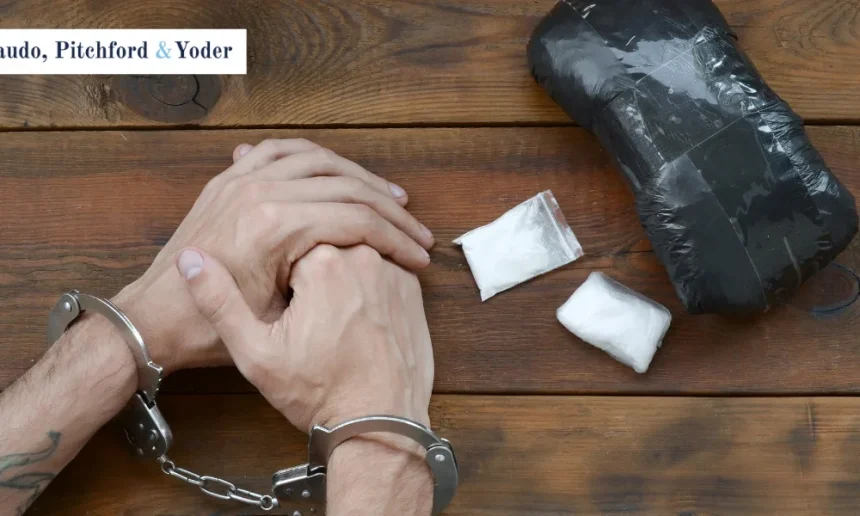Drug crime charges can carry severe consequences, impacting not only your criminal record but also your personal and professional life. The stakes are high when facing allegations involving controlled substances, ranging from marijuana to narcotics such as cocaine or heroin. However, all hope is not lost. There are several legal defenses that experienced defense attorneys use to challenge drug crime cases and protect their clients’ rights. Understanding these defenses can help you make informed decisions when facing drug-related charges.
When speaking with an experienced drug crimes lawyer, it is crucial to understand the possible defense strategies that can be utilized. These defenses vary depending on the specifics of the case, the type of drug involved, and the circumstances under which the crime allegedly took place. Here are some of the most common defenses used in drug crime cases.
1. Unlawful Search and Seizure in Drug Crime Cases
One of the most powerful defenses against drug charges is the argument that law enforcement officers violated your constitutional rights during the investigation. The Fourth Amendment of the U.S. Constitution protects citizens from unreasonable searches and seizures. In many cases, a law enforcement officer must have a warrant to search your property, unless they have probable cause or consent.
If the police searched your home, car, or person without a valid warrant or probable cause, the evidence obtained could be inadmissible in court. A skilled defense attorney can argue that the evidence was obtained illegally and ask the court to exclude it, potentially leading to the dismissal of the charges.
2. Lack of Knowledge of Drug Possession Charges
In some drug cases, defendants claim that they did not know they were in possession of illegal substances. This defense may be applicable if you were unaware of the drugs or if they were hidden in a location you had no control over, such as a bag belonging to someone else. For instance, if a friend or acquaintance leaves drugs in your car without your knowledge, you may not be guilty of possession.
This defense is challenging to prove, but an experienced drug crime lawyer can help present evidence that raises reasonable doubt about your knowledge of the drugs. It may include witness testimony, surveillance footage, or other supporting evidence that shows your lack of awareness.
3. Entrapment in Drug Crime Cases: A Legal Defense
Entrapment occurs when law enforcement officers induce or encourage an individual to commit a crime they would not have otherwise committed. If you can demonstrate that the police used coercion, deception, or persuasion to push you into engaging in illegal drug activity, you may have an entrapment defense.
4. No Possession or Control Over Drugs: A Possible Defense
Another defense is that you did not actually possess the drugs in question, or that you did not have control over the drugs. For example, if drugs were found in a shared space, such as a car or apartment that you do not own, it may be challenging for the prosecution to prove that the drugs belonged to you.
In drug possession cases, the prosecution must prove not only that you had the drugs but also that you had control over them. A defense lawyer may argue that the drugs belonged to someone else, or that you were unaware of their presence, thus challenging the idea that you had possession or control over the substances.
5. Coercion or Duress in Drug Crime Cases
If someone threatened you with harm or pressure to participate in drug-related activity, you may have a duress defense. The defense claims that the defendant was acting under pressure or fear for their life or the safety of others.
To successfully use the duress defense, there must be evidence that the threat was immediate and that there was no way for you to avoid the crime. This defense is often challenging to prove, as it requires demonstrating that the defendant was under significant and immediate pressure.
6. False Identification of Drugs in Drug Possession Cases
Not all substances are what they appear to be.For example, a substance that appears to be cocaine could turn out to be an over-the-counter legal powder or a completely different substance.
In such cases, the defense attorney can call into question the accuracy of the drug testing process or the methods used to identify the substance. If the prosecution cannot prove that the substance is indeed illegal, the charges may be dismissed or reduced.
7. Misidentification as the Defendant in a Drug Crime
Misidentification is another common defense in drug crime cases. In some situations, the defendant may argue that they were incorrectly identified as the person involved in the drug-related activity. This defense is often based on the idea that the police mistakenly arrested the wrong person or misinterpreted the situation.
Witness testimony, video surveillance, or alibi evidence may support this defense, and it can help establish reasonable doubt in the minds of jurors. In cases where the police conducted an arrest based on mistaken identity, a defendant may not be held liable for drug-related charges.
8. Drugs Were for Personal Use, Not Distribution
In some drug possession cases, a defense lawyer may argue that the drugs were intended solely for personal use, rather than for distribution. While this defense may not absolve the defendant of the charges entirely, it can impact the severity of the penalties.
In many states, penalties for drug possession for personal use are less severe than penalties for drug trafficking or distribution. A skilled defense attorney can argue that the drugs in question were not intended for sale, potentially leading to reduced charges and penalties.
9. Violation of Miranda Rights During Arrest or Interrogation
If law enforcement officers did not properly read you your Miranda rights at the time of your arrest, any statements or confessions you made afterward may not be admissible in court. Similarly, if you were not properly informed of your right to remain silent or your right to an attorney, this could violate your constitutional rights.
If your rights were violated during the arrest or subsequent investigation, a defense attorney can challenge the prosecution’s case based on these violations. This could result in the suppression of evidence or even the dismissal of the charges.
10. Witness Testimony and Alibi Defense in Drug Crime Cases
Lastly, an alibi defense may be effective in drug crime cases where you can prove that you were not at the location of the alleged crime. If you have credible witnesses or evidence that places you elsewhere during the time of the alleged offense, you may be able to establish reasonable doubt in the case.
Witnesses, security footage, GPS data, and other forms of evidence may support your alibi. An experienced defense attorney can help gather and present this evidence effectively in court.
Legal Help and Defense Strategies for Drug Crime Cases
Facing drug charges can be overwhelming, but with the right legal representation, you can fight back. If you or someone you know is facing drug crime charges, it is crucial to seek the advice of a defense lawyer who can help you navigate the complex legal landscape.
An attorney who is well-versed in drug crime defense strategies will work with you to build the strongest possible case, ensuring that your rights are protected throughout the legal process. Speaking with an experienced drug crimes lawyer is the first step in ensuring that your defense is robust and tailored to your specific situation.
With the right legal help, you can navigate your drug crime case and work toward achieving the best possible outcome. Contact Lotze Mosley PLLC today to discuss your case and explore your defense options.








